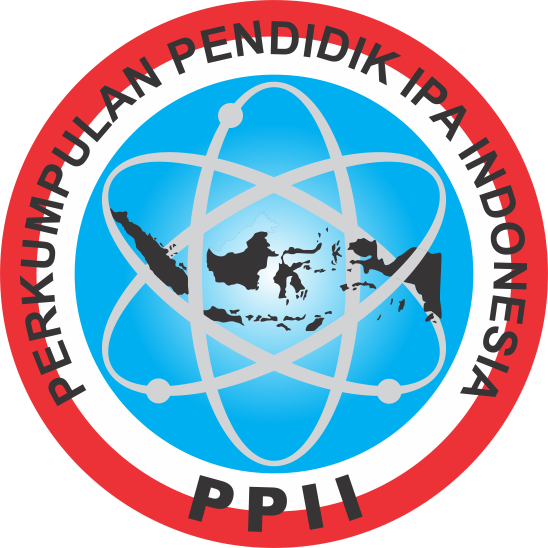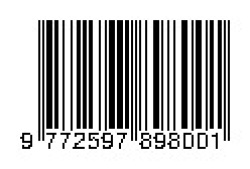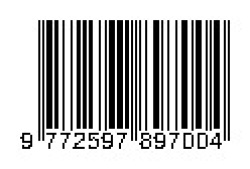DIFFERENCES IN DIGITAL LITERACY SKILLS OF PROSPECTIVE SCIENCE TEACHER AT MAKASSAR STATE UNIVERSITY BASED ON BATCH
(1) Department of Science Education, Universitas Negeri Makassar, Indonesia
(2) Department of Biology Education, Universitas Negeri Makassar, Indonesia
(3) Department of Biology Education, Universitas Negeri Makassar, Indonesia
(4) Department of Science Education, Universitas Negeri Makassar, Indonesia
(5) Department of Science Education, Universitas Negeri Makassar, Indonesia
(*) Corresponding Author
DOI: https://doi.org/10.35580/ipaterpadu.v8i1.59594
Abstract
Full Text:
PDFReferences
Asari, A., Kurniawan, T., Ansor, S., Bagus, A., & Rahma, N. (2019). Digital Literacy Competencies for Teachers and Students in the School Environment of Malang District. BIBLIOTIKA: Journal of Library and Information Studies, 3, 98–104.
Asosiasi Penyelenggara Jasa Internet Indonesia. (2022). Indonesia Internet Profile 2022. Apji.or.id, June, 10. apji.or.id.
Daud, F., & Saenab, S. (2017). Biology Teacher's Response to the Utilization of Information Communication Technology (ICT) in the Learning Process. Journal of IPA Terpadu. 1(1), 74-79.
Donaldson, C., & Alker, Z. (2019). Digital literacy. Journal of Victorian Culture, 24(3), 329–330.
Fitriyani , F., & Nugroho, A. T. (2022). Digital Literacy in the 21st Century Learning Era. El-Mujtama: Jurnal Pengabdian Masyarakat, 2(3), 213–220.
Greenstein, L. (2012). Assessing 21st Century Skills : a guide to evaluating mastery and authentic learning. California: Corwin a Sage Company.
Kaarakainen, M. T. (2018). Information Skills of Finnish Basic and Secondary Education Students: The Role of Age, Gender, Education Level, Self-efficacy and Technology Usage. Nordic Journal of Digital Literacy. 13(4), 56 - 72.
Kementerian Pendidikan dan Kebudayaan Republik Indonesia. (2019). Teaching materials for learning introduction (integrated PPK, literacy, HOTS, 4Cs). Directorate General of Teachers and Education Personnel, edisi ke-1.
Kementerian Komunikasi dan Informatika. (2021). Status of Digital Literacy in Indonesia Executive Summary. 1–73. https://katadata.co.id/StatusLiterasiDigital
List, A., Brante, E. W., & Klee, H. L. (2020). Framework of Pre-Service Teachers’ Conceptions about Digital Literacy. Computer and Education, 148(1), 103788.
Nahdi, D. S., & Jatisunda, M. G. (2020). Digital Literacy Analysis of Prospective Sd Teachers in Virtual Classroom-Based Learning during the Covid-19 Pandemic. Journal of Cakrawala Pendas, 6(2), 116–123.
Ng, W. (2012). Can we teach digital natives digital literacy ? Computers & Education, 59(3), 1065–1078.
Ready, A. (2016). Use of Online Media as a Source of Academic Information for Communication Science Students, Faculty of Social and Political Sciences, Riau University. JOM FISIP, 3(1).
Ririen, D., & Daryanes, F. (2022). Analysis of Student Digital Literacy. Research and Development Journal of Education, 8(1), 210.
Susanto, S. N. (2021). Analysis of FETT Students' Digital Literacy Skills in Virtual-Based Online Learning in the New Normal Era. National Learning Transformation 2021, 1(2), 339–346.
Taspcott, D. (2008). Grown up Digital: How the Net Generation is Changing Your World. McGraw-Hill
Tawil, M., & Liliasari. (2018). Theory and Implementation of Science Learning. Makassar: Publishing Agency of Universitas Negeri Makassar.
Tiven, M. B., Fuchs, E. R., Bazari, A., & MacQuarrie, A. (2018). Evaluating Global Digital Education: Student Outcomes Framework. In Bloomberg Philanthropies and the Organisation for Economic Cooperation and Development.
Ustundag, M.T., Erhan, G., & Eralp, B. (2017). Turkish Adaptation of Digital Literacy Scale and Investigating Pre-service Science Teachers’ Digital Literacy. Journal of Education and Future. 12, 19-29.
Article Metrics
Abstract view : 14 times | PDF view : 0 timesRefbacks
- There are currently no refbacks.
Published by:
Program Studi Pendidikan IPA FMIPA
Universitas Negeri Makassar
Alamat Redaksi:
Indexed By:

Jurnal IPA Terpadu (JIT) is licensed under a Creative Commons Attribution-NonCommercial 4.0 International License.

.png)






